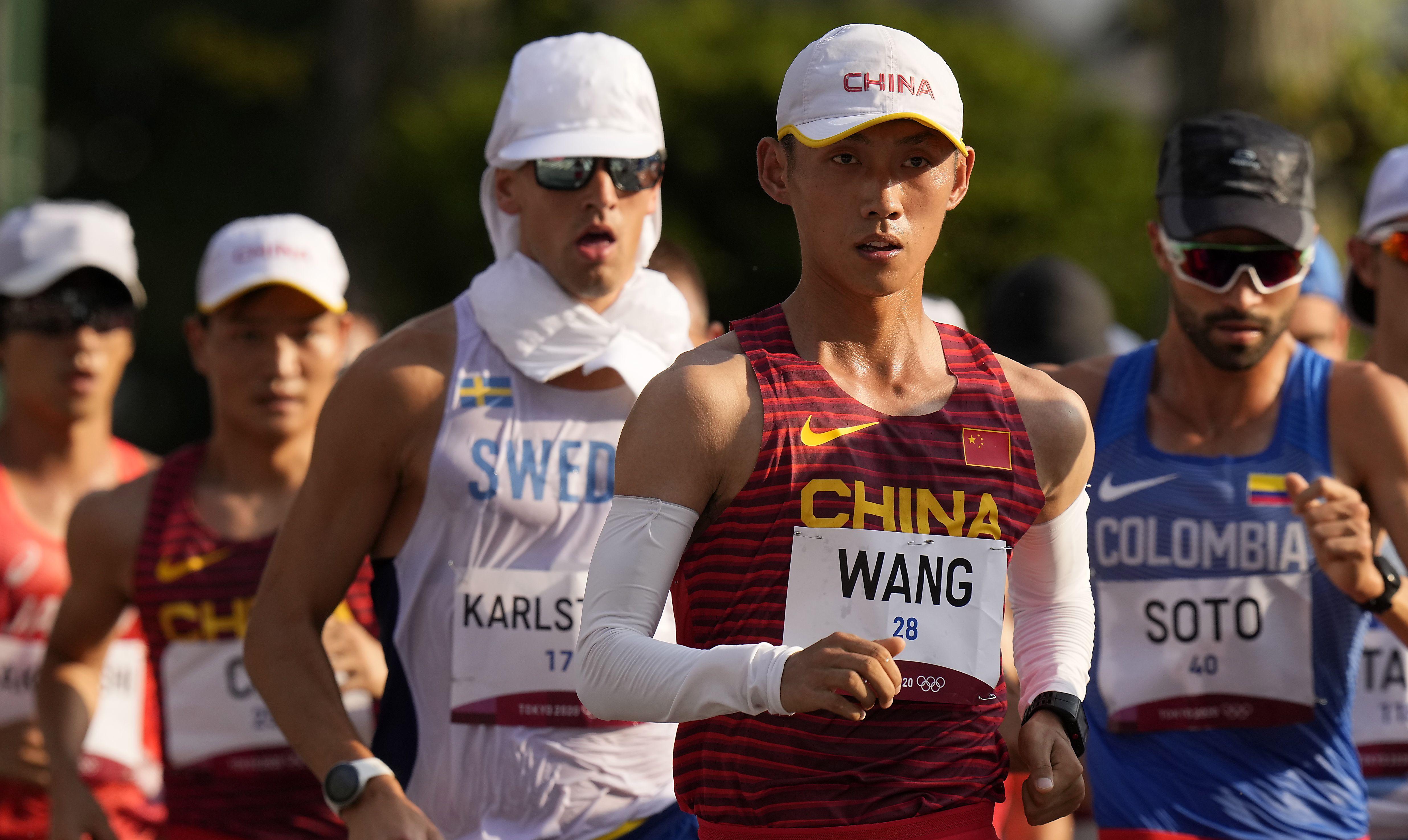
Wang Kaihua once led a huge margin, and finally only won the 7th place. Figure /IC PHOTO
On the afternoon of August 5, the Tokyo Olympic race walking event kicked off in Sapporo Odori Park, the first match was the men's 20 km race walk final, the national record holder Wang Kaihua once had a huge lead, the result was caught up in the second half, rebounded, and finally won the 7th place, the other two Chinese players Zhang Jun and Cai Zelin won the 8th and 26th places respectively.
The World Series stage returned with regrets one after another
At the Rio Olympics 5 years ago, 22-year-old Wang Kaihua also followed the Chinese race walking team, but his identity was a substitute team member, and he witnessed Wang Zhen and Cai Zelin winning gold and silver medals. The status of a substitute for the Rio Olympics was also normal for Wang Kaihua, who was only 22 years old at the time and had little experience in the competition.
Entering the Tokyo Olympic cycle, Wang Kaihua gradually became the leader of China's men's 20-kilometer race walk. At the 2017 Tianjin National Games, Wang Kaihua easily won the men's 20 km race walk championship in 1 hour, 20 minutes and 52 seconds, laying the foundation for his dominance in the domestic arena. At the 2018 Asian Games in Jakarta, Wang Kaihua, who traveled for the country, lived up to expectations and pushed Japan's famous Shanxi Lihe to win the gold medal in 1 hour, 22 minutes and 04 seconds.
However, Wang Kaihua participated in the World Championships twice in 2017 and 2019, but did not reach the podium, and his performance in international competitions was not satisfactory. Especially at the World Championships in Doha two years ago, Wang Kaihua watched the Asian Games defeated Shanxi Lihe win the World Championships, and he only ranked 8th.
After entering 2021, Wang Kaihua seems to have found his peak status in the Olympic year. In the Olympic trials in late March this year, Wang Kaihua won the championship in 1 hour, 16 minutes and 54 seconds, breaking the national record of 1 hour 17 minutes and 36 seconds held by Olympic champion Wang Zhen, only 18 seconds away from the world record (1 hour 16 minutes and 36 seconds) held by Japanese famous Yusuke Suzuki.
In the competition of the Tokyo Olympic Games, the group advantages of japan, Spain and China were obvious, but the championship was won by Italy's Stano. Wang Kaihua, who was in excellent shape in the first half of the year, failed to extend his good state to the Olympic arena and once again regretted it on the stage of the World Series.
Missed the Olympic Games in this event for three consecutive olympic titles
"I not only want to help the Chinese race walking team successfully defend their title in this project, but I also hope to have the opportunity to challenge the world record." My brothers have achieved good results in the first two Olympic Games, and my pressure is definitely there, but I also take the doubts of the outside world as a driving force, and I think this is also a challenge to me. "When looking forward to the Tokyo Olympic Games before the expedition, Wang Kaihua was full of confidence.
The reason why Wang Kaihua dares to say this, in addition to his confidence in his own strength and competitive status, also depends on the brilliant achievements of the Chinese race walking team in the Olympic Games.
At the 2012 London Olympics, Chen Ding won the men's 20 km race walk championship, setting the Olympic record at the time, and Wang Zhen won the bronze medal in that race. At the 2016 Rio Olympics, Wang Zhen changed the color of the bronze medal at the London Olympic Games and won the men's 20 km race walk championship, and teammate Cai Zelin won the silver medal.
"My technical disadvantage is in the sprint stage, the sprint ability is relatively poor, the advantage is continuity, from the start to the end, to complete the race with high speed and high frequency." During the preparation for the Tokyo Olympics, Wang Kaihua conducted a lot of targeted training to improve the speed and frequency of his sprint stage, as well as adaptive training to cope with hot weather.
Unfortunately, the results were not satisfactory, in Sapporo Odori Park, Wang Kaihua failed to withstand the high temperature and humidity weather and the impact of many opponents, and ended his first Olympic tour with 7th place, and the Chinese men's 20 km race walk also missed the Olympic Games for 3 consecutive championships.
The Beijing News sent a special Tokyo reporter Xu Bangyin
Edited by Han Shuangming, Proofreader Li Lijun